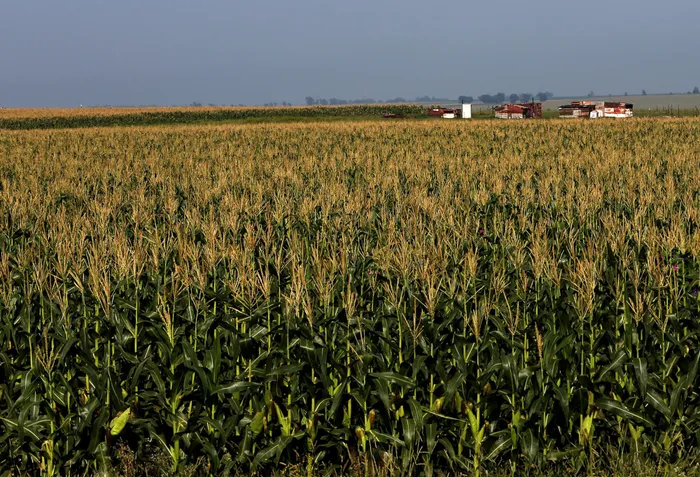
The Department of Agriculture responded to concern following reports that the Auditor General reported earlier this month that the department had received a qualified audit and an increase in fruitless and wasteful expenditure
Image: File
The Department of Agriculture has moved to defend itself following concern over the Auditor-General’s report indicating a qualified audit opinion and a surge in fruitless and wasteful expenditure during the 2024/25 financial year.
The latest audit findings covering the 2024/25 financial year ending on 31 March 2025 were tabled by the Auditor-General in Parliament on 7 October, showing that the department received a qualified audit opinion despite spending 94% of its budget while achieving only 83% of its target.
The department's spokesperson, Moses Rannditsheni, last week said the audit pertains to a period before the establishment of the new stand-alone department.
"The Auditor-General’s findings relate to the former Department of Agriculture, Land Reform and Rural Development (DALRRD) before the institutional split took effect," Rannditsheni said.
"Simply extracting data from those historical programme components does not reflect the leadership structure, mandate or operating systems of the new Department of Agriculture, which only came into being at the end of the 2024/25 financial year."
He added that it would be “inaccurate and unfair” to judge the new department based on data from an entity that no longer exists.
"The new department has its own executive management, strategy and financial architecture, none of which were in place during the audit period. Minister [John] Steenhuisen also assumed office after the financial year had begun, and the department’s new strategic direction and organisational design were adopted only in November 2024," he said.
Rannditsheni said the department welcomes the Auditor-General’s findings as an opportunity to strengthen governance, internal controls and financial management following the administrative transition.
"The qualified opinion mainly stemmed from transitional record-keeping and classification issues, including incomplete documentation and inconsistencies in how certain payments and assets were recorded during the handover. The Auditor-General did not find any evidence of fraud or financial misconduct.
“To address the technical and administrative weaknesses identified, the organisation has implemented a clear, time-bound Audit Improvement Plan. This plan focuses on tightening financial controls, cleaning up historical records and instilling stronger accountability through active consequence management."
Meanwhile, the Southern African Agri Initiative (Saai) said the audit findings highlight persistent governance and accountability failures in the agricultural portfolio.
“The Auditor-General highlighted a sharp increase in fruitless and wasteful expenditure from R40 million to R104m, with no evidence of consequence management or recovery of funds. This is not labelled as corruption, but it demonstrates gross mismanagement and a dangerous lack of accountability in a department tasked with protecting national food security,” it said.
Saai said that the audit committee reported 28 forensic investigations across several branches, including agricultural production, food security, and financial management.
“Many of these investigations remain incomplete, with the same audit findings repeating year after year. The Auditor-General further flagged persistent irregular expenditure, weak internal controls, and an absence of consequence management, all symptoms of a system that enables waste and inefficiency.”
The Parliament’s Portfolio Committee on Agriculture also expressed alarm over vandalised and incomplete Farmer Production Support Units (FPSUs) — costly infrastructure projects intended to assist small-scale farmers but now left idle or abandoned.
“These facilities have absorbed millions in public funds without providing a single tangible benefit to the farmers they were built for,” Saai said.
Dr Theo de Jager, chairperson of Saai’s Board, said that the wasteful expenditure of R104m "stands in stark contrast" to the mere R2.2m in outstanding debt that has caused the department to be excluded from several major international agricultural platforms, such as the G20 Farmers’ Dialogue, since 2023.
“This has inflicted serious reputational damage on South Africa in the global agricultural community,” he said.
De Jager added that the consequences are already visible.
“Farmers are losing faith in the Department’s ability to manage budgets, maintain infrastructure, or deliver essential support programmes,” he said.
“Money intended for farmer development, disease control, and agricultural infrastructure is being swallowed by administrative waste, while the farming sector faces growing isolation from international partners and investors.”
BUSINESS REPORT